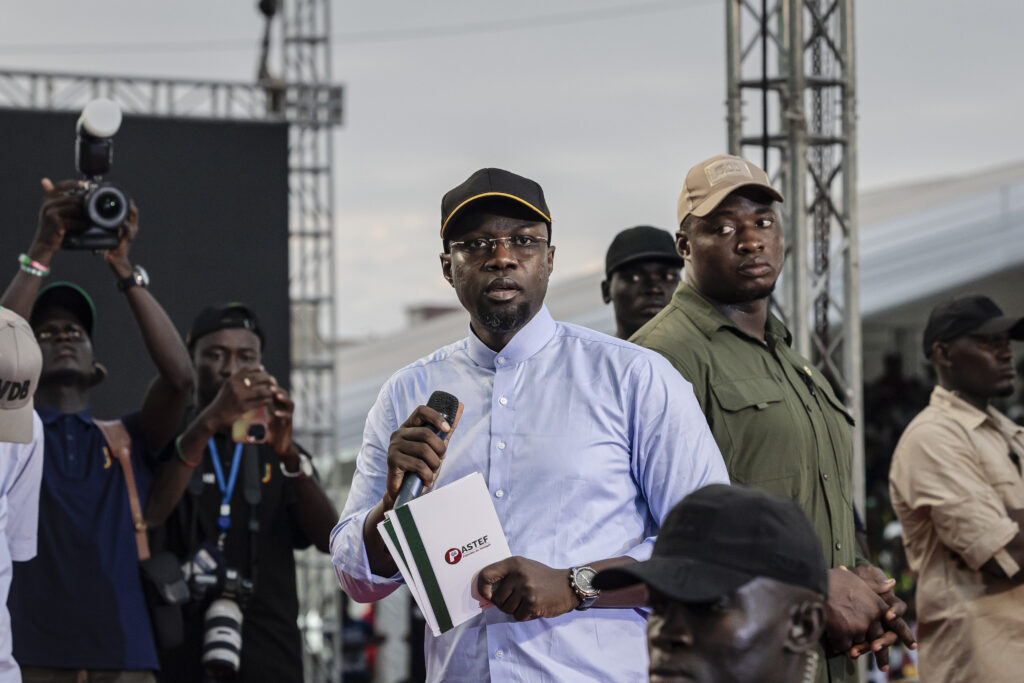How ought a country cope with colossal debt? As Africa hosts its first G20 summit in Johannesburg on Saturday with debt among the top topics, Senegal is battling to secure a new aid programme from the IMF.The heavily indebted west African nation is aiming to ease its financial burden and restore its economic partners’ confidence with the move.- Hidden debt -With a total public sector debt estimated at 132 percent of GDP by the International Monetary Fund (IMF), Senegal is now the second most indebted country in sub-Saharan Africa.In 2024, Senegal’s current government, formed after an opposition electoral victory, accused the former administration of ex-president Macky Sall (2012-2024) of having concealed the true extent of the country’s worrisome budgetary situation.As a result, the IMF suspended a $1.8 billion aid programme it had agreed upon in 2023, pending further information and commitments from Senegal’s new authorities.It pointed to what it said had been significantly misleading statements by the previous administration regarding budget deficits and public debt for the 2019-2023 period.- ‘Difficult’ discussions -After several IMF visits to Senegal to examine the country’s financial situation, the IMF and the government began negotiations in mid-October for a new aid programme.The sides have still not reached an agreement, which is not unusual at this stage in the talks.”The discussions with the IMF were difficult,” Prime Minister Ousmane Sonko told a large rally of supporters in Dakar on November 8.He additionally told the crowd he rejected a restructuring of Senegal’s debt, which he said would be a “disgrace” for the country, tantamount to declaring “bankruptcy”.Restructuring would allow Senegal to alter its loan terms through various means such as increasing its repayment term or cancelling part of the interest or debt.In an interview, IMF mission chief Edward Gemayel acknowledged “very, very intense discussions” with the government.But he praised the country’s “resilient” economy and reiterated that “there is no default (on payments) at the moment”.- ‘Sacrifices’ needed -In granting aid programs, the IMF expects states to implement reforms that will allow them to achieve long-term economic and fiscal stability, such as reductions in public spending, broadening of the tax base or elimination of subsidies.However in African countries such as Angola and Nigeria ending costly fuel subsidies has resulted in violently repressed riots in recent years.Sonko announced in early November that people would have to make “sacrifices” in order to rebuild the country within “two or three years”.In August, his government unveiled an “economic recovery plan” to be financed by domestic resources, which included reducing government spending and taxing new revenue streams such as digital services, mobile money, gambling and real estate.At the end of September 2025, debt servicing costs represented 22 percent of Senegal’s revenue, a significant portion of the state budget. This proportion “is expected to increase in 2026”, economist Moubarack Lo said.- Investors ‘lack visibility’ -The situation is eroding confidence in Senegal’s markets and international economic partners’ trust.Last week credit ratings agency Standard & Poor’s (S&P) downgraded Senegal’s long-term debt rating by one notch to “CCC+”, citing “precarious” finances.A month earlier, Moody’s had also downgraded the country’s sovereign debt rating by one notch for the second time this year.As a result, the value of Senegalese foreign currency bonds has fallen on the markets in recent weeks.”At a triple-C rating, Senegal will no longer be able to access the bond market, no longer be able to finance itself,” said Benoit Vesco, president of consulting firm Delubac AM.”The climate is not good,” said Lo. “Investors lack visibility, so this could hinder large-scale investments”.Lo said he prefers to speak of financial “tensions” rather than a “crisis” at this stage, however.While awaiting the IMF aid programme, which will restore market confidence and allow borrowing at lower rates, Senegal must borrow on the regional financial market at very high interest.At least, Lo said, this “allows us to pay salaries and operating expenses” and to repay “the upcoming debt instalments”.
